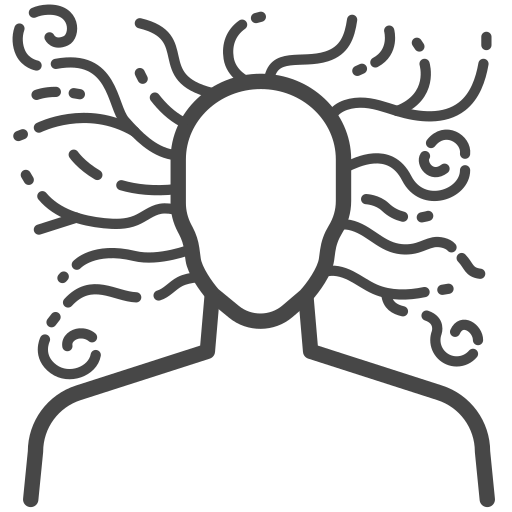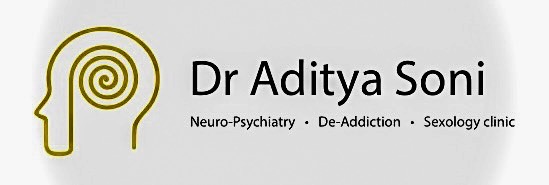Services


Neurological
Neurology is the branch of medicine that deals with the study, diagnosis, and treatment of disorders of the nervous system, which includes the brain, spinal cord, and peripheral nerves.


Psychiatric Disorder
A psychiatric disorder, also known as a mental disorder or mental illness, is a condition that affects a person's thinking, mood, behavior, or emotional regulation, often causing significant distress or problems in functioning..


Addiction Psychiatry
SAddiction psychiatry is a subspecialty of psychiatry focused on the evaluation, diagnosis, and treatment of individuals with disorders related to substance use and addiction, as well as co-occurring mental health conditions


Sexologist/Sexual Health
A sexologist is a specialist who studies and provides guidance on human sexuality, including sexual behavior, function, orientation, identity, and health.


Child Psychiarty
Child psychiatry, or child and adolescent psychiatry, is a medical subspecialty that focuses on the diagnosis, treatment, and prevention of mental, emotional, and behavioral disorders in children and adolescents, typically up to age 18.


Women Mental Health
Women’s mental health refers to the study, diagnosis, and treatment of mental health conditions as they uniquely affect women across their lifespan—accounting for biological, hormonal, psychological, and social factors that influence their emotional well-being.


Adoloscent Mental Health
Adolescent mental health refers to the emotional, psychological, and social well-being of individuals roughly between the ages of 10 and 19—a critical developmental period marked by rapid physical, emotional, and social changes.


Cognitive Behaviour Therapy/CBT
Cognitive Behavioural Therapy (CBT) is a structured, short-term, evidence-based form of psychotherapy that helps individuals identify and change unhelpful patterns of thinking and behavior.


Bipolar Mood Disorder
Bipolar disorder, also known as manic depression or bipolar affective disorder, is a condition in which affected individuals will experience periods of depression in which they can feel sad and empty followed by a period of suddenly being very happy. The period of extreme happiness is also known as mania.


Generalized Anxiety Disorder (GAD)
Those with generalized anxiety disorder will worry constantly and excessively about numerous things, even routine things that might seem ordinary to others. Those with GAD have trouble controlling their thoughts and can’t seem to control their anxiety levels. GAD often interferes with an individual’s daily life and can make particular mundane tasks such as social conversations difficult.


Obsessive-Compulsive Disorder
Obsessive-Compulsive Disorder is a mental health disorder that causes severe anxiety in those who are affected by it and is characterised by obsessive thoughts and compulsive behaviours that interfere with daily life. It is a chronic and long term disorder in which the person has uncontrollable, recurring thoughts and behaviours and feels the urge to repeat over and over again.


Schizophrenia
Schizophrenia is characterized by a range of cognitive, behavioral, and emotional dysfunctions. In order for a diagnosis to be made, there must be a collection of symptoms present that are associated with impaired occupational as well as social functioning.
Magical Therapy for the
People Need Help
Finding a professional who can help you with your mental health is a challenge. It is a time-consuming and often frustrating process, especially for people who are struggling with a mental disorder. We make it easy for people to find a professional psychiatrist in Jaipur.

PTSD
Our brain is like any other part of our body, and mental illness is just like a physical disease. Like a physical illness, mental illness also needs care and treatment. And, like many physical illnesses, with the right treatment most people with mental disorders are able to live healthy and productive lives.

Panic Disorder
It's very common to experience panic symptoms before upcoming events or things outside your control, but people who experience panic disorder may have sudden intense bouts of panic seemingly out of nowhere. Experiencing panic attacks leave people feeling exhausted physically and mentally.

Phobia/Fear
Having phobias can disrupt daily routines, limit work efficiency, reduce self-esteem, and place a strain on relationships because people will do whatever they can to avoid the uncomfortable and often-terrifying feelings of phobic anxiety.

Social Anxiety Disorder
Social anxiety disorder, also called social phobia, is a type of anxiety disorder characterized by an intense, persistent fear of social situations. Someone with social anxiety disorder will be extremely worried about people judging them or being embarrassed in front of others. People with this disorder fear various types of situations, including social interactions, being observed, or performing. They may also be afraid of others noticing that they are anxious. The fear is inappropriate compared to the actual threat of the situation, often leading to avoidance of social situations, which just fuels the intense fear. The level of avoidance and anxiety for the situation interferes with an individual’s functioning and quality of life.

Borderline Personality Disorder
The National Institute of Mental Health (NIH) describes borderline personality disorder as marked by erratic mood swings, poor self-image, impulsive behavior, extreme “black-and-white” thinking, self-harm, and an inability to maintain stable interpersonal relationships. Episodes of heightened anger, depression, or anxiety are other hallmarks of the disorder.

Eating Disorder
An eating disorder is a mental disorder defined by abnormal eating behaviors that negatively affect a person's physical or mental health. Only one eating disorder can be diagnosed at a given time.
